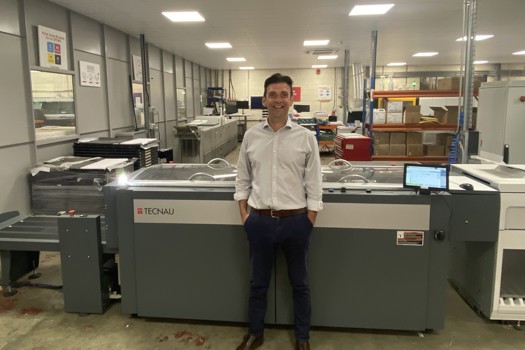John Knight (74), Stephen Knight (67), Brian Thomas (70), Paul Murphy (57) and Philip Sach (53) were variously charged on four counts related to cheating the public revenue and tax evasion as a result of an eight-year fraudulent enterprise which funnelled cash through various back-channels tax-free to top up salaries and keep their struggling company afloat.
After enforcing ostensible pay cuts on both directors’ and employees’ salaries in the wake of the 2008 financial crash, Basildon-based Anton’s directors endeavoured to “top up” their own and employees’ pay through untaxed means. At its peak, the print and mailing outfit employed more than 360 people on turnover of over £40m.
The fraud included unreported cash-in-hand sales of waste paper and aluminium to Keeble Paper Recycling in Rainham, East London, which were carried out from 2004 to 2012, and a string of fake invoices attributed to suppliers when the money was actually diverted into directors’ personal bank accounts and used to pay off directors’ loan accounts owed to the company.
In a sentencing hearing at Southwark Crown Court on Friday (31 January), Judge Philip Bartle QC found the defendants guilty on all counts, though his ruling took into consideration the directors’ reportedly unselfish motivations, their varying levels of culpability, and personal circumstances.
He said: “As the purpose of the fraud was to maintain the status quo for Anton, its directors and employees, it is not to say the directors used the money to fund luxurious lifestyles as is usually the case in these instances.
“All the defendants have suffered considerably as a result of delays to proceedings and some or all of them may now face financial ruin. It is clear that the money accrued through the tax evaded was used to help an ailing company and safeguard 360 jobs, however the directors chose to do so in a dishonest way.”
The defence referred to the “paternalistic character of the company” and warm character references from friends, family and employees in their statements, as well as the advancing age of the Knights and Thomas, and the mental toll of the prolonged trial.
Bartle told the court that he deemed John Knight to be the “leading player” in the fraud, though he noted his brother Stephen, Thomas, and Murphy’s respective culpability in facilitating the scheme. He noted that both John Knight and Murphy had lied to the court and HMRC during proceedings but commended all parties for their eventual cooperation.
“John Knight was in overall control of the business during the indictment period and I am sure he was the only leading player in these offences, while all the others took part in various ways and knew what they were doing. I do not accept that any of them were pressured,” Bartle said.
However, he noted that Sach’s role was unique as he was only a sales director in name so as to retain him at the company as an experienced and respected salesperson, with the salary top-ups devised in part so that he did not leave Anton following the pay cuts.
Sach’s case was further considered differently due to the sudden death of his wife in August 2017, ahead of the originally scheduled plea hearing, which left him as the sole carer for their young son.
“Mr Sach especially blamed himself for his wife’s death, believing it was caused by the stress of proceedings, and there is no doubt that there would be a devastating effect on his son if he received a custodial sentence,” Bartle said.
Following investigations by HMRC in 2011 followed by raids and arrests in 2012, four charges were levelled variously at the five directors. The Knights and Thomas were charged on one count for failure to declare the sales of waste to Keeble, thus evading VAT and Corporation Tax, while a second count saw the three and Paul Murphy charged with concealing the true balances of directors’ loan accounts to evade Corporation Tax.
A third count saw the same four directors charged with failure to declare payments made to remunerate directors and employees of Anton, thus evading Income Tax and National Insurance.
Murphy pleaded not guilty to both of his charges, while John Knight pleaded not guilty to the second count and the two were subsequently tried by Judge Bartle and found guilty.
Guilty pleas were submitted on the remaining charges by all defendants in initial hearings in December 2017.
Sach alone was charged on the fourth count as being knowingly concerned in the evasion of Income Tax due to his receipt of the remunerations detailed above, having been privy to but not in control of the scheme. He pleaded guilty in December 2017.
Ultimately, John Knight received a three and a half-year jail sentence and was disqualified from company directorship for seven years, Stephen Knight and Brian Thomas both received 28 months jail time and five- and four-year disqualifications respectively.
Paul Murphy will undertake 150 hours of unpaid community work with a two-year jail sentence suspended for two years and a three-year disqualification. Sach will undertake 100 hours of unpaid community work with a 10-month sentence suspended for 12 months.
Counsel for the prosecution, Stephen Hopper, identified the total evaded tax for which each defendant was responsible both personally and due to their culpability in the wider scheme: John Knight evaded £1.7m, Stephen Knight £1.1m, Thomas £1.2m and Murphy £334,000. Sach personally evaded £173,000 in tax, but was not found culpable for any further harm caused by the scheme.
Anton fell into administration in March 2017 and ceased trading a month later with a creditors' shortfall of almost £13.4m. HMRC is now pursuing confiscation action for the money defrauded in the process of tax evasion.










